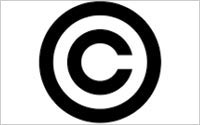 The digital locker service Hotfile "actively fosters the massive copyright infringement that fuels its business," a coalition of movie studios argues
in court papers made public this week.
The digital locker service Hotfile "actively fosters the massive copyright infringement that fuels its business," a coalition of movie studios argues
in court papers made public this week.
"As with other adjudicated pirate services that came before it, from Napster and Grokster to Isohunt and Limewire, Hotfile exists to profit from
copyright infringement," the Motion Picture Association of America says in a motion seeking summary judgment against Hotfile.
"As with those other infringers, more than 90% of the files
downloaded from Hotfile are copyright infringing, and nearly every Hotfile user is engaged in copyright infringement."
advertisement
advertisement
The legal proceedings date to February of 2011, when the MPAA filed a
lawsuit in federal court in Florida arguing that Hotfile's business model encourages users to infringe copyright. The company allows people to upload and distribute files for free, but at restricted
speeds. Hotfile also offers premium memberships without the speed limits at prices ranging from $9 a month to $55 a year. In addition, it operates an affiliate program that compensates users who
upload popular files, according to the court papers.
The MPAA argues that this system encourages users to upload copyrighted videos and promote the links for referral fees.
Hotfile
says in its court papers -- also made public this week -- that the company is entitled to the Digital Millennium Copyright Act's safe harbor protections. Those provisions generally immunize sites from
infringement liability based on users' uploads, as long as sites take down pirated material upon request. But the safe harbors have exceptions, including one for sites that know about infringement and
fail to act.
The MPAA counters that Hotfile isn't eligible for the safe harbors for several reasons, including that it allegedly knew about infringement taking place on its service and didn't
proactively put a stop to it.
Some recent legal developments could help Hotfile in court. Last August, a judge ruled that another digital locker service, MP3tunes.com, was eligible to
claim the safe harbors for at least some instances of alleged copyright infringement.
In December, the 9th Circuit Court of Appeals ruled in a lawsuit by Universal Music Group that Veoh wasn't
liable for infringement by users. The appellate court rejected an argument put forward by Universal that Veoh wasn't eligible for the safe harbor defense because it knew that some users posted pirated
clips. Instead, the court ruled that companies like Veoh only lose a safe harbor defense if they have “specific knowledge” of a particular clip that is infringing, as opposed to general
knowledge that infringement occurs at the site.
At the same time, a separate development could favor the MPAA: Earlier this year, executives of the digital hosting service Megaupload
were indicted for criminal copyright infringement. The indictment
includes a host of allegations, some of which go beyond the allegations against Hotfile.
For instance, Megaupload officials allegedly personally uploaded pirated content. But some allegations
against Megaupload appear similar to the MPAA's complaints against Hotfile -- such as a claim that Megaupload officials offered cash rewards to people who uploaded popular files.
The criminal
case against Megaupload's executives hasn't yet gone to trial.
The MPAA argues in its motion that Hotfile's business model is "indistinguishable" from Megaupload's. "Defendants even admit that
they formed Hotfile 'to compete with' Megaupload," the MPAA says in its court papers.
The MPAA and Hotfile appear to have filed their papers under seal last month. The versions that were made
public this week were contained several passages that had been blacked out.